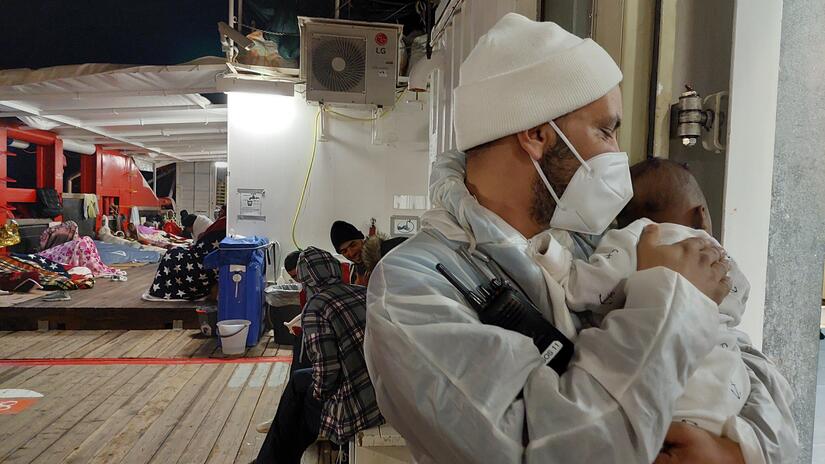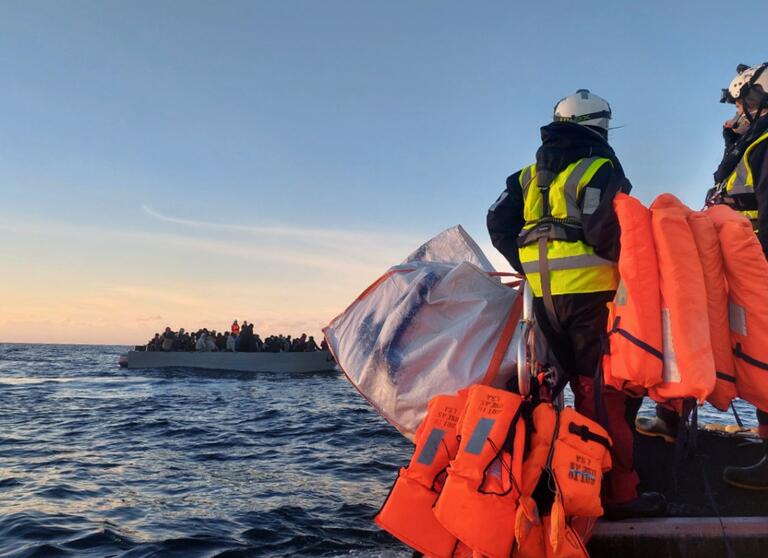New York / Geneva, 16 May 2022 – President of the International Federation of Red Cross and Red Crescent Societies (IFRC) Francesco Rocca calls on states to step up to their responsibility to save lives, no matter where people are from, ahead of the first review of the Global Compact for Migration (GCM).
Mr Rocca says: “When I was in Marrakech for the adoption of the GCM I made a statement that the world’s approach to migration is painfully broken – but that the GCM can fix it. As we begin the first review of the progress made since then, I am sad to say that this has not been the case so far. Not enough changes to policies and practices to ensure safe and dignified migration have taken place, and many more lives have been lost due to that failure to act.”
On the world’s deadliest sea migration route, the central Mediterranean, the number of deaths has in fact increased since the GCM was signed. The Ocean Viking ship, operated by SOS Mediterranée with IFRC providing humanitarian services on board, saves people in distress on this route.
“We need to carry out this work as state-coordinated search and rescue is absent in the area,” says Mr Rocca. “Our teams have already saved 1,260 people in the nine months we’ve been operating.”
The Ocean Viking is one of the 330 Humanitarian Service Points (HSPs) in 45 countries that supports the ambitions of the GCM, providing assistance and protection to people on the move irrespective of status and without fear of reprisal. The Romanian Red Cross implements HSPs in Bucharest to support people fleeing Ukraine, providing information, food, water, hygiene items and financial assistance, while the Hungarian Red Cross has been operating a HSP at the Keleti railway station 24/7 to welcome people arriving from Ukraine by train with information, food, hygiene items and baby care products.
During the COVID-19 pandemic, the Colombian Red Cross Society has implemented HSPs at the border with Venezuela, offering essential services like healthcare, while Libyan Red Crescent volunteers have provided support to migrants and displaced people, operating HSPs that provided access to information, food, and other necessities, as well as restoring family links services.
At the International Migration Review Forum (IMRF), the IFRC is calling for individual and collective efforts on search and rescue; ensuring access to essential services for migrants regardless of status; scaling up support to people affected of climate related displacement; and the inclusion of migrants in all aspects of society and decision making.
“The political, public and humanitarian response to the Ukraine crisis has shown what is possible when humanity and dignity comes first, when there is global solidarity and the will to assist and protect the most vulnerable,” says Mr Rocca. “This must be extended to everyone in need, wherever they come from. Ethnicity and nationality should not be deciding factors in saving lives.”
Listen to the recording of Francesco Rocca's press briefing at the UN in New York.
To schedule an interview or for further information:
In New York: Tommaso Della Longa, +41 79 708 4367, [email protected]
In Geneva: Anna Tuson, +41 79 895 6924, [email protected]





